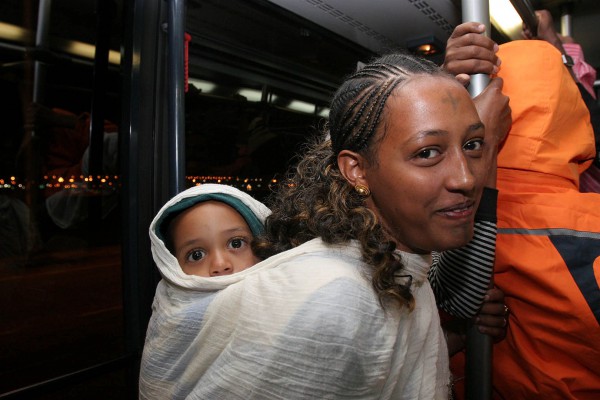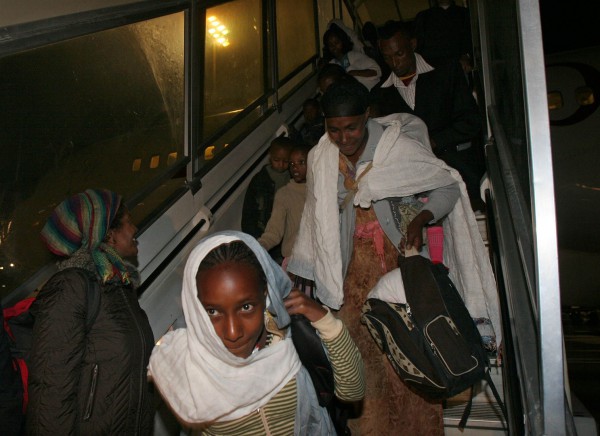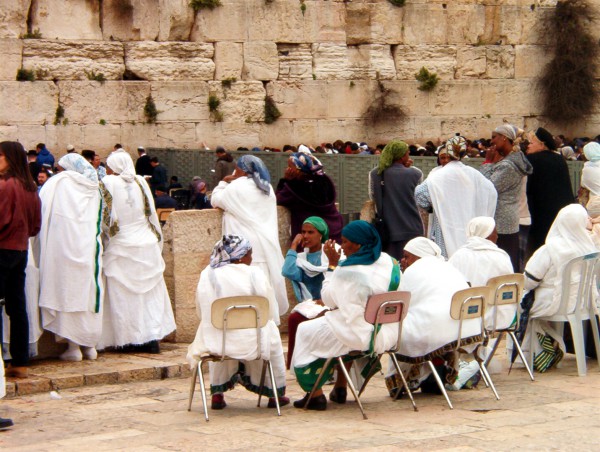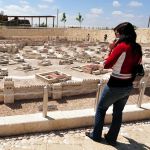“‘He who scattered Israel will gather them and will watch over His flock like a shepherd.’” (Jeremiah 31:10)
In fulfillment of Bible prophecy, God continues to draw His people home to the Holy Land. The Jewish state’s 125,000 Ethiopian Israelis will grow by another 9,146 if Ethiopia’s Jewish-descendant community receives approval for aliyah (immigration) from the Israeli Cabinet.
A draft proposal submitted by Israel’s Interior Minister Silvan Shalom this past week seeks to secure citizenship for an updated list of Ethiopians waiting in the Ethiopian cities of Gondar and Addis Ababa for aliyah to Israel.
The so-called Falash Mura, a somewhat pejorative term meaning converted falasha (foreigners/exiles), refers to Ethiopians who have Jewish ancestry but who converted in the 19th and 20th centuries in the face of persecution and economic discrimination.
Some adopted Christian beliefs without abandoning Judaism; others never practiced Judaism, and due to this, “the Israelis saw them as non-Jews,” writes Jewish Virtual Library.
Beta Israel (the Ethiopian Jewish community) also did not recognize the Falash Mura as part of their community. Still, many were inarguably relatives of Beta Israel families.
The first wave of 8,000 olim (immigrants) came over a seven-week period from November 1984 to January 1985 during the clandestine Operation Moses.
As well, many Falash Mura came to Israel in 1991 during Operation Solomon, when Israel covertly transported over 14,000 Ethiopian Jews to Israel in 36 hours.
The last immigration wave came through Operation Dove’s Wings which brought another 7,000 or so “eligible” Falash Mura to Israel in August 2013. (Jewish Agency)
As a result of these operations, many families were separated.
“While some members of their families came to Israel, after having met the conditions of the various cabinet decisions regarding the Falashmura,” the proposal states, these descendants of Jews were not recognized as Jews. They had, therefore, “remained in Addis Ababa and Gondar, living a Jewish life, with active synagogues, ritual baths, Sabbath and holiday observance, study of Hebrew and Judaism, etc.”
Those who didn’t qualify for aliyah in 2013 remained in Addis Ababa and Gondar even though they had already left their villages, homes, land and cattle behind. Everything they owned was forfeited and claimed by others.

An Ethiopian Falashmura woman and her baby, part of a group of 81 new olim who are being transported by bus after arriving at Ben Gurion Airport. (Photo by Brian Hendler)
Objectors to the immigration of the group said that the Beta Israel community already had enough trouble preserving their Jewish faith and don’t need an influx of members who are weak in the Jewish faith or don’t practice it at all.
Shalom’s proposal helps to remedy this concern by requiring applicants who have been waiting in these two Ethiopian cities since before January 1, 2013, to state their intention to convert in Israel — to be recognized formally as Jews. (Haaretz)
The proposal comes after a lengthy public campaign that was started in late 2010 by Ethiopian Israelis, volunteer groups and members of the Knesset.
The Jewish Agency operation left questions “about the fate of those left behind and whether the government’s determinations on who was eligible to make aliyah were valid,” wrote Michal Shmulovich for the Times of Israel in August 2013.
The two criteria to receive an entry permit to Israel in 2013 were that the olim (immigrants) be “descended from Ethiopian Jews on their mothers’ side, and that they appear on one of the lists attached to the government decisions in question,” Shalom’s proposal states.
However, “some in Gondar say they were given a false sense of hope, stemming from a confusing selection process amid shifting government criteria, only to find out, years later, that they weren’t eligible for aliyah,” Shmulovich said.

Ethiopian Falash Mura immigrants disembark after arriving at Ben Gurion Airport in January 2009. (Photo by Brian Hendler)
Shalom’s proposal to restore the Ethiopian families of Israel might link to Prime Minister Benjamin Netanyahu’s speech before the Jewish Federation of North America this past week when he said, “I will always ensure that all Jews can feel at home in Israel — Reform Jews, Conservative Jews, Orthodox Jews — all Jews.”
Optimistically, perhaps, Israel’s intentions toward a deeper recognition of the various streams of Judaism would include recognition of Jews by paternal descent and more varied expressions of the Jewish faith.
Meanwhile, Shalom’s proposal describes itself as “the last state-organized aliyah of Ethiopians to Israel” and the last hope perhaps for the Falash Mura to reach Israel.
“Following this aliyah, requests by Ethiopian nationals seeking to make aliyah to Israel claiming they belong to the Falash Mura community will no longer be approved,” Omri Efraim writes for Ynet News.











